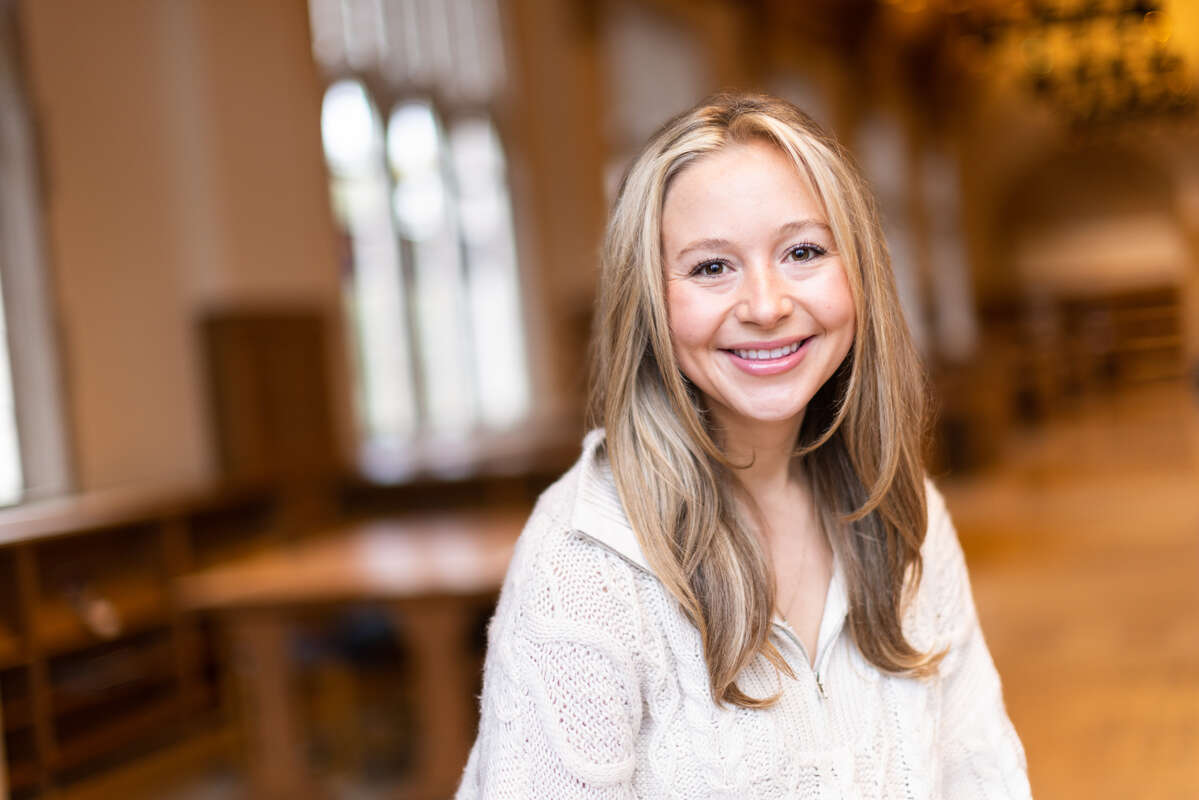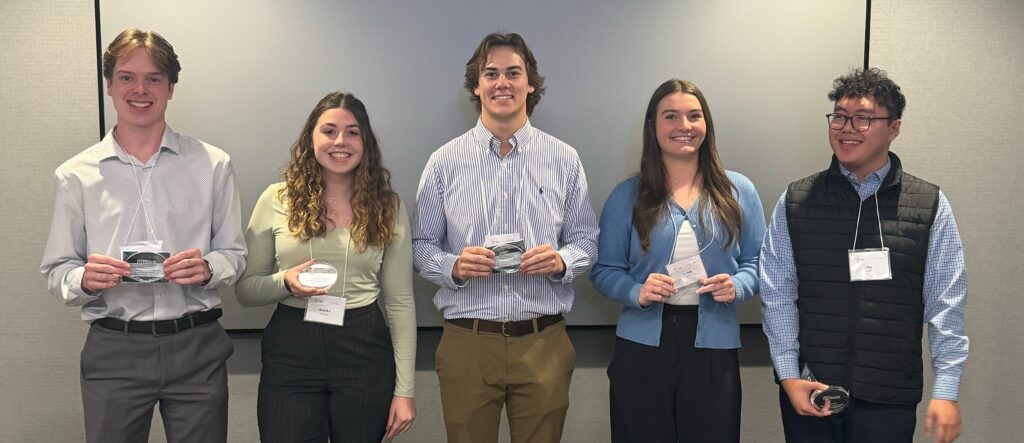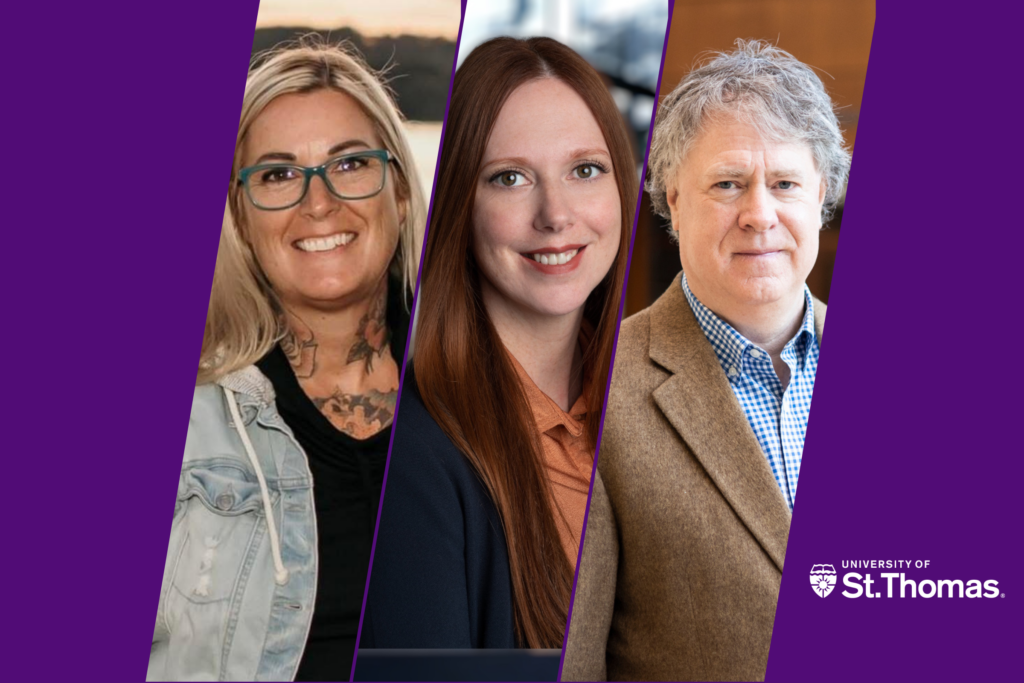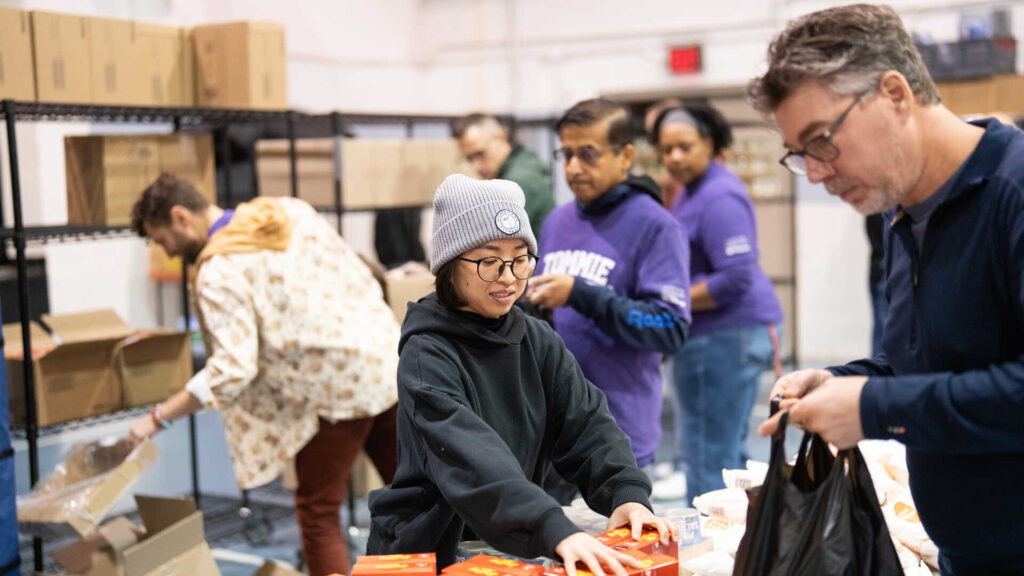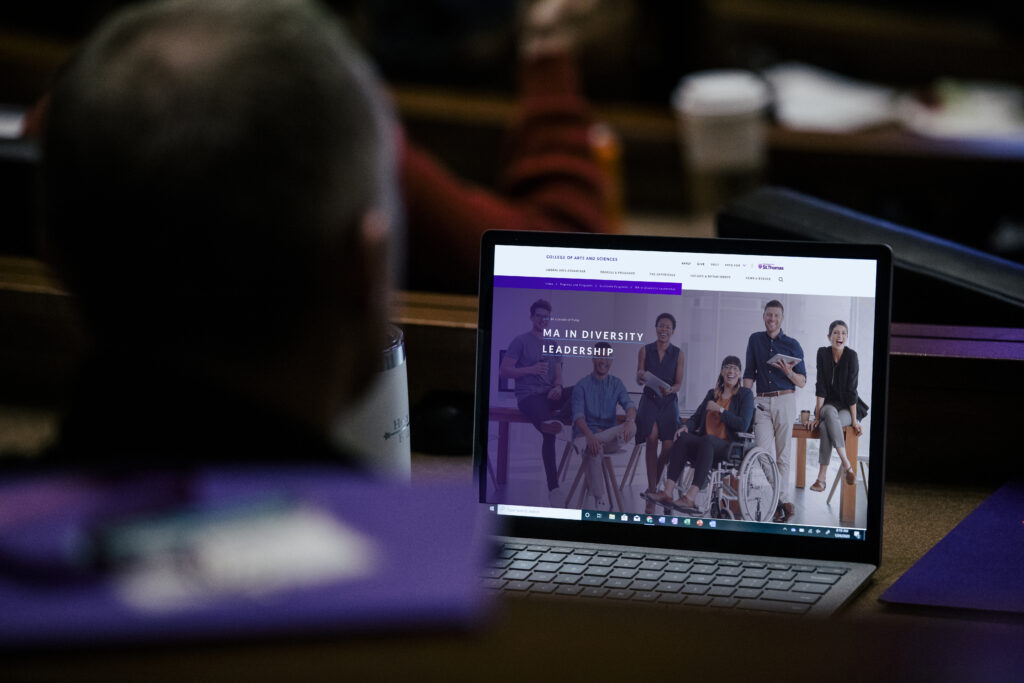Schulze Innovation Scholar Grace Northamer ’22 has shared the stage with Dick Schulze and recently moderated a panel for Women Entrepreneurship Week. The Newsroom connected with Northamer on her entrepreneurial enthusiasm, studying abroad, career aspirations and more.
What was it like serving as the moderator of the Women Entrepreneurship Week panel? How did it differ from interviewing Dick Schulze, the founder and chairman of Best Buy Co. Inc., when you interned at BETA?
Moderating the panel was a great opportunity to sit down with women who have a diverse set of backgrounds and opportunities. What really came through in how they approached that was as a value-based, gritty take at entrepreneurship, and I don’t think we get to hear the story of that often. The biggest thing to me is just how candid they are.

One of the biggest differences between interviewing Mr. Schulze and the Oct. 18 panel conversation was that my conversation with Mr. Schulze was centered around his ability to reflect on his entrepreneurial successes that took decades to build. In the more recent panel, we talked about the daily struggles and successes that the women were facing in much earlier phases of their entrepreneurial journeys. While the conversations were very different, they both offered amazing insights into value-based entrepreneurship.
What do you love about being an entrepreneurship major?
The best thing that’s come to fruition for me as an entrepreneurship major is the peers I’ve been able to meet who want to compete in these competitions, who want to get gritty and put themselves out there and find opportunities to both succeed and fail, and are willing to fail with you, which I think is really unique.
Beyond that, the faculty at the Schulze School are unmatched.
How has being a Schulze Innovation Scholar played a part in your college career?
The other Schulze Innovation Scholars are the first people I’ll call when I’m seeking guidance from a peer, whether it be class project or someone to chat with about professional opportunities. They are a network of people who provide support and encourage me to be better. Being in a community of people who have that mindset and ability to push themselves and push others had made me a better student, professional, and honestly, a better person.
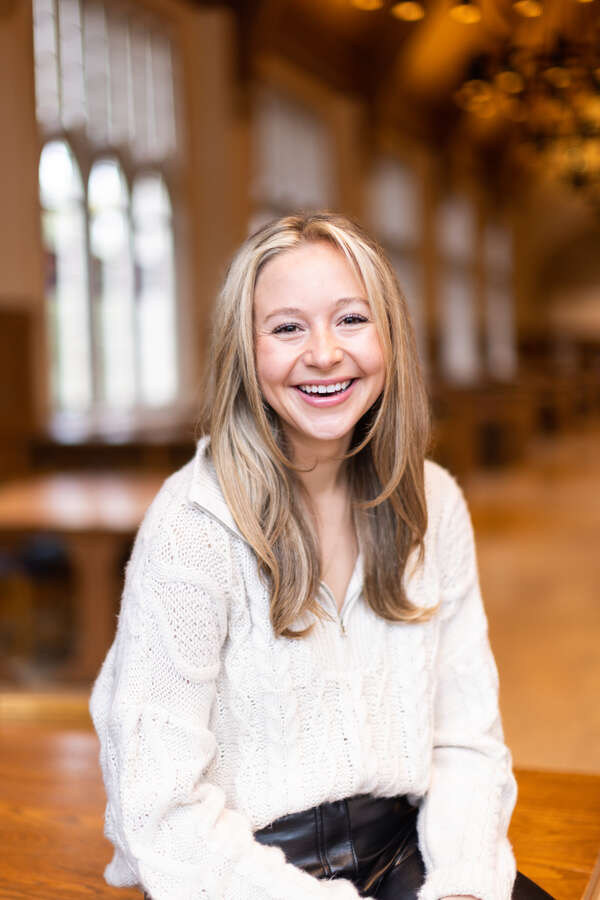
How did spending two J-Terms studying abroad widen your perspective?
My intercultural empathy grew significantly. St. Thomas does a really good job of trying to open our eyes to the breadth of different people that we live amongst, and how that will impact the way one conducts business. Obviously, business at its core is a human function.
Studying abroad really opened my eyes to how differently we all exist, and how important it is to ensure that you're engaging with these cultures properly and respectfully.
What have you learned at St. Thomas that helped you in your roles at Boston Consulting Group, Best Buy and BETA?
I think one of my biggest takeaways is that I should never be the first person to tell myself no.
People at the University of St. Thomas, and in my life in general, have seen things in me that I haven’t always seen in myself, and have snuck their foot in the door before I’ve closed it – especially Dr. [John] McVea. He opened my eyes to the notion that the only one stopping me from being better was myself.
I think the other thing which goes hand in hand is that the best form of currency is what you have with others in your relationships. That’s something that you build up through not only your words, but the way you show up for people.
What are your career aspirations?
I want to continually find myself in a place where I can grow in tandem with other people. I want to be a good person, and I hope that translates to the way I conduct myself in business in whatever capacity I’m serving. I’m thrilled to be able to join Boston Consulting Group full time after graduation in December. What’s most important to me is that (1) the work is meaningful, and (2) it creates opportunities for me to continue to be a support system or a mentor to other people while I’m experiencing mentorship.
Who has impacted your perspective on entrepreneurship the most?
The person at St. Thomas who has had the biggest impact on the way I perceive entrepreneurship is Dr. Laura Dunham. I was really fortunate to have her as my adviser; she has just been a rock.
The entrepreneurial values that I have been able to grow at St. Thomas will help me to do meaningful work, whether it be at a Fortune 500 company, a consulting firm or a nonprofit. I have gone from believing that an entrepreneur is someone who starts a business, grows it and either sells it or takes it public to understanding that entrepreneurial values show up in all work situations and often even in your personal life.
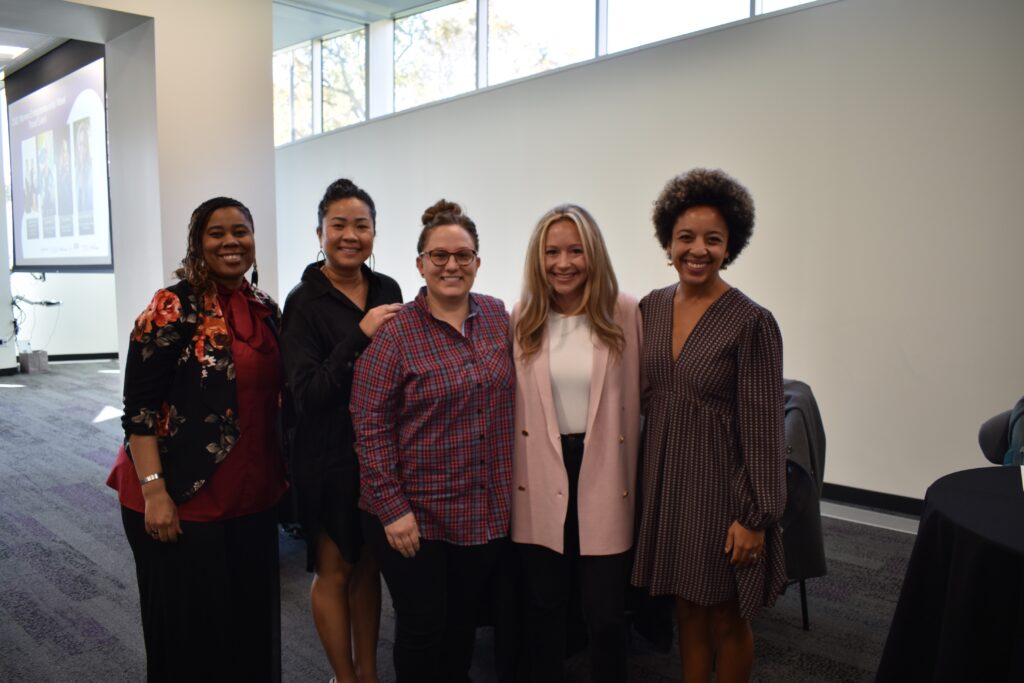
Why is volunteering important to you?
I feel very fortunate to have had so many people invest in me personally, professionally and academically.
I enjoy going back to the Chanhassen, Minnesota, church that I grew up in and being a Sunday school teacher. It’s an opportunity for me to instill what others have instilled in me into those kids, and hope that one of them goes on having a better day. Anyone who’s in a position to offer their services or time to other people [might find] that’s the most rewarding part of life; I think it is.
Anything else to add?
I hope that gratitude comes across in everything that I do. If I had anything to say to the University of St. Thomas and the people in it, it would be thank you for investing in me, and allowing me the opportunity to invest in so many others as well. The opportunity to interview Mr. [Dick] Schulze was unparalleled. He’s made himself available to so many scholars to be able to see him as a mentor. I feel very fortunate to be able to experience the Schulze School and all of the people who make it so wonderful, I truly can’t say thank you enough.
